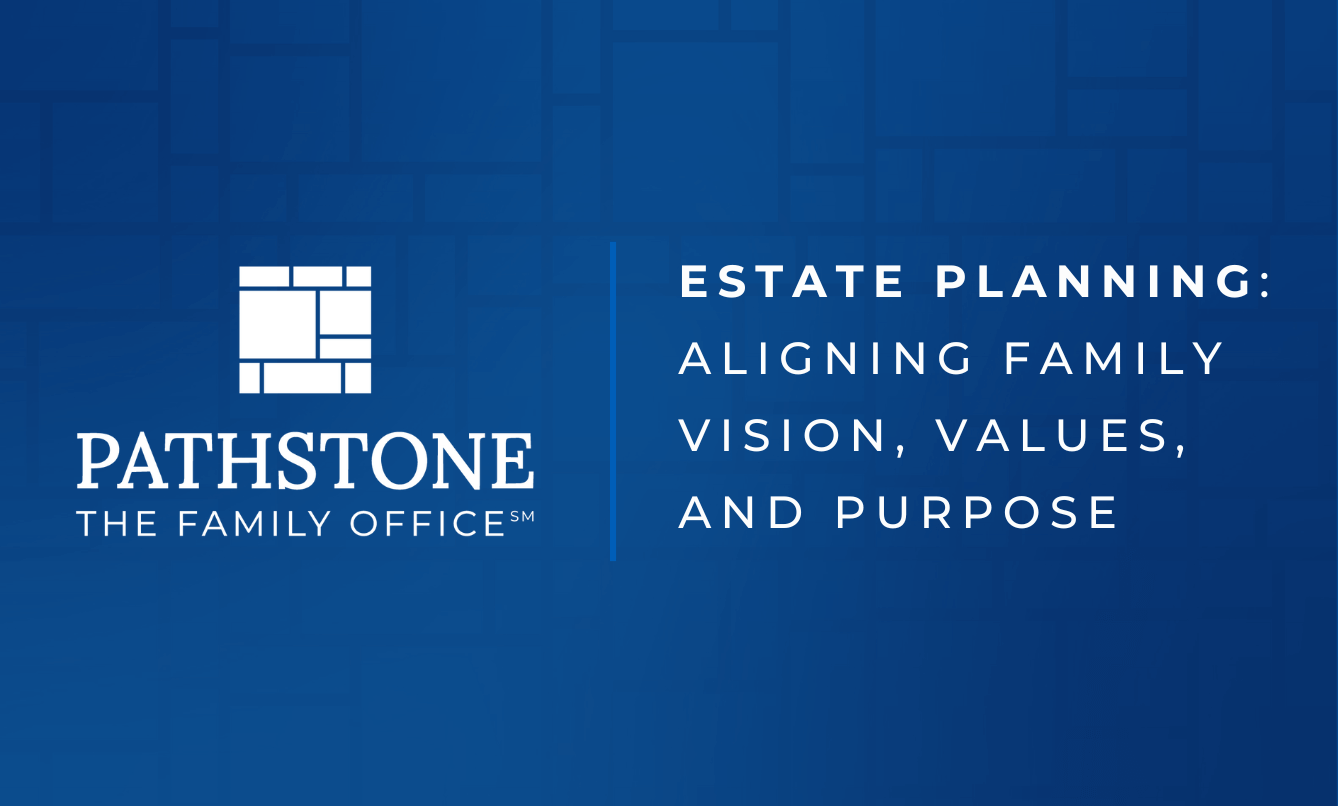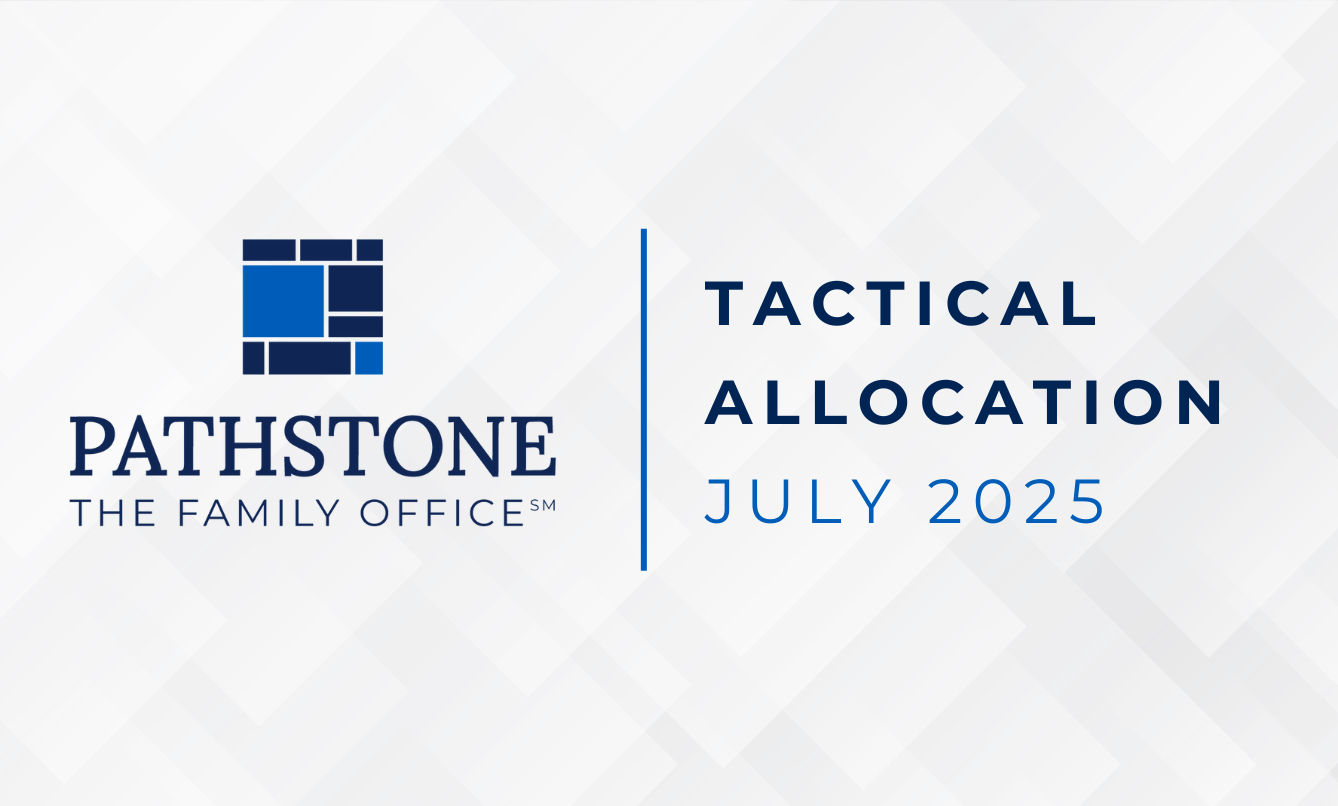Estate planning can be viewed as a tax-focused financial necessity for those with significant wealth. We believe that estate plans can also provide an opportunity for meaningful family engagement about shared vision and purpose as well as individual values and goals. An effective estate plan entails clear communication about the intent behind these gifts, so that recipients understand and appreciate the purpose of the inheritance, fostering a sense of responsibility and stewardship while also freeing them to use inherited wealth to enhance their lives.
As a follow-up from our June webinar series Estate Planning Essentials: Integrating the Technical and the Human, this article focuses in on the importance of starting the planning process based on what matters most to your family.
Exploring Your Family Vision
When initiating or revisiting the planning process, it’s vital to articulate your vision of success, core values, and the purpose of your wealth. This reflection helps clarify your priorities and decision-making criteria – which for many families will go beyond tax efficiency. Key considerations include:
- Overarching Vision: What does success mean for your family? Reflect on the principles and aspirations that drive your family, encompassing areas such as shared business interests, community involvement, education, philanthropy, and personal fulfillment.
- Purpose of Financial Wealth: How do you see your financial wealth serving your family’s needs and goals? Understanding the purpose of your wealth allows you to use it as a tool to achieve broader objectives, rather than simply focusing on accumulation and preservation.
- Estate Planning Goals: How can your estate plan help achieve your family’s vision of success? Focus on specific strategies and structures that support your vision, ensuring your wealth is used effectively and meaningfully.
There is no single “right” estate plan; rather, a plan should reflect the unique values and priorities of the family. For instance, a couple who has emphasized self-reliance and career achievement to their children, and who are now focused on philanthropic efforts to alleviate suffering, might design an estate plan that passes just enough financial capital to the next generation to provide a safety net, while establishing a significant donor-advised fund. On the other hand, a couple who prioritizes personal fulfillment and family cohesion may create a trust to supplement income for the next generation pursuing meaningful but low-paying careers, while also establishing another trust to fund family travel.
Estate Planning Communication and Co-Creation
Some important questions to consider in defining a shared family vision:
- When I reflect on whether my life was well lived, what will stand out?
- In what ways do I want to share my time, talent, and treasure with my community? What impact do I ultimately want to leave?
- What kind of adults do I want my children to become?
- When I envision my successful multigenerational family, how would I describe it?
- Is there non-financial capital I can be more intentional in building to help us move towards that vision of success?
A separate discussion of the role of wealth in moving toward that vision would address issues such as:
- What is the purpose of our financial wealth? How can it be used to move us toward our vision for success?
- How could financial gifts given to important people or causes in our life help us move toward what we want for ourselves and our family?
- What are ways our estate plan might inadvertently contradict our values or work against what we want for ourselves, our family, or our communities?
- What are some of the most important decision-making criteria we can use in shaping our estate planning?
Conclusion
Estate planning involves making conscious choices with multigenerational implications. Establishing a shared vision of what success means for your family often leads to more effective and harmonious outcomes that not only safeguard financial assets but also promote family unity and ensures that your legacy is preserved for future generations.
*Pathstone’s team of fiduciary, philanthropic, and family dynamics experts are here to serve as a sounding board or to work through both the human and technical aspects of estate planning. Contact your Pathstone advisor to learn more or reach out to Pathstone’s Wealth Planning Group at WPG@Pathstone.com.
Disclosures
This presentation and its content are for informational and educational purposes only and should not be used as the basis for any investment decision. The information contained herein is based on publicly available sources believed to be reliable but is not a representation, expressed or implied, as to its accuracy, completeness or correctness. No information available through this communication is intended or should be construed as any advice, recommendation or endorsement from us as to any legal, tax, investment or other matters, nor shall be considered a solicitation or offer to buy or sell any security, future, option or other financial instrument or to offer or provide any investment advice or service to any person in any jurisdiction. Nothing contained in this communication constitutes investment advice or offers any opinion with respect to the suitability of any security, and this communication has no regard to the specific investment objectives, financial situation and particular needs of any specific recipient. Past performance is no guarantee of future results. Additional information and disclosure on Pathstone is available via our Form ADV, Part 2A, which is available upon request or at www.adviserinfo.sec.gov.
Any tax advice contained herein, including attachments, is not intended or written to be used, and cannot be used, by a taxpayer for the purpose of (i) avoiding tax penalties that may be imposed on the taxpayer or (ii) promoting, marketing or recommending to another party any transaction or matter addressed herein.
No Legal, Accounting or Tax Advice. Pathstone will act solely in its capacity as a registered investment advisor and does not provide any legal advice. Though Pathstone can provide accounting and tax services, the client should seek the counsel of a qualified accountant and/or attorney when necessary. Pathstone may assist clients with tax harvesting, and we will work with a client’s tax specialist to answer any questions related to the client’s portfolio account.









